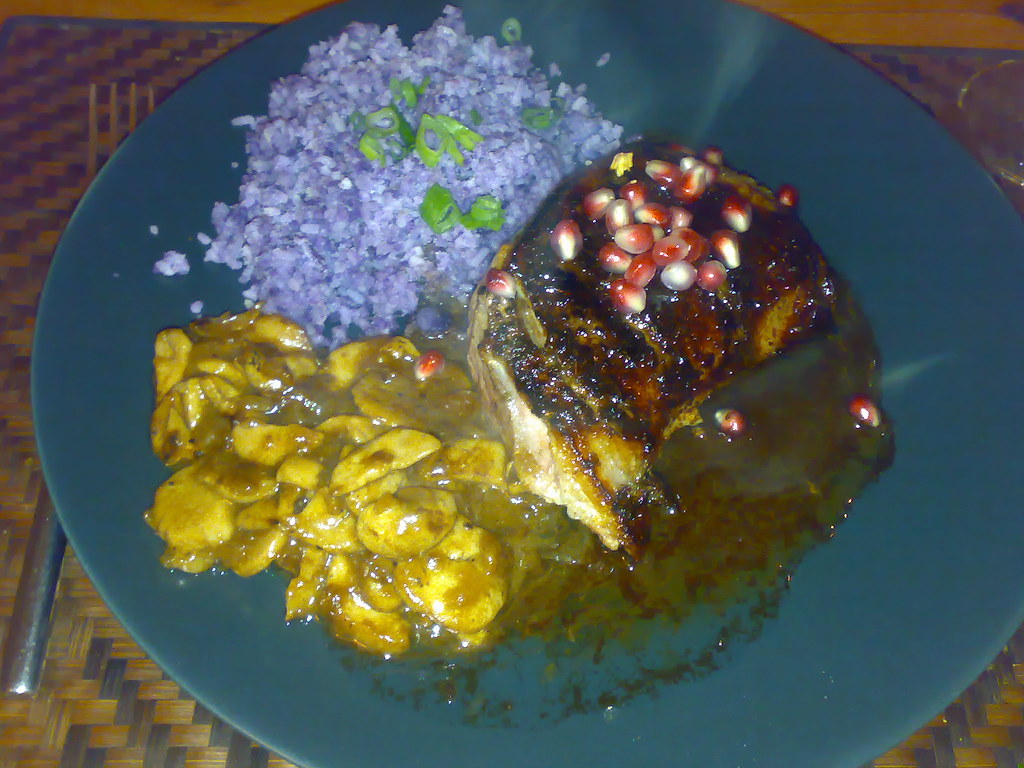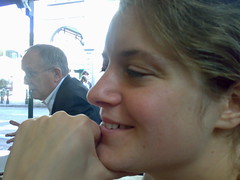‘Experiment’ is my word, and expresses the only way I think one could approach such an experience. Such temporary sensory deprivation is unlikely to give enough time for other senses to compensate, so the point of eating in the dark must be largely to bring home to one how important sight is to the enjoyment of food for most people. When I was little, we used to play around with such ideas by doing things like being blindfolded and being fed randomly cubes of onion and of apple, or eating assorted sandwiches with our eyes closed.
Certainly there are all sorts of visual cues that we pick up and interpret, without having to think in such sophisticated terms as aesthetic impact. Food needs to be the right colour for us to be comfortable eating it; apparently we are conditioned to be suspicious of blue food, but food that is inappropriately green, or darker than it should be, or even just brightly coloured and unfamiliar, will also set off alarm bells.
Whatever the evolutionary reason for the attention we pay to the appearance of food, it can now be used to enhance our enjoyment.
 One of my personal indulgences is the occasional purchase of black truffle potatoes, which are unprepossessing in their natural state, looking like dirty dark purple Jerusalem artichokes, dull and knobbly. When boiled, peeled and mashed, they turn into a wonderfully episcopal purple mass, with a dry, floury texture and an earthy, almost fruity flavour. With a garnish of spring onion tops for contrast, they make a beautiful third of a meal that also involves the jewelled red of pomegranate seeds on top of the fried duck-breast with a pomegranate sauce and the startling yellow of braised ceps.
One of my personal indulgences is the occasional purchase of black truffle potatoes, which are unprepossessing in their natural state, looking like dirty dark purple Jerusalem artichokes, dull and knobbly. When boiled, peeled and mashed, they turn into a wonderfully episcopal purple mass, with a dry, floury texture and an earthy, almost fruity flavour. With a garnish of spring onion tops for contrast, they make a beautiful third of a meal that also involves the jewelled red of pomegranate seeds on top of the fried duck-breast with a pomegranate sauce and the startling yellow of braised ceps.Although the flavours were delicious, a great deal of my pleasure in this meal came from the simple joy of the bright colours together - I would love to go to Dans le Noir, but only as an experiment.

1 comment:
Experiments seem to show that rather than enhancing our sense of taste, exactly, blindness can make food less palatable. I think it was Paul McKenna who fed his test subjects a delicious fry in a poopular trucker cafe, and brought them back next day to repeat the experience, this time blindfolded.
Despite looking forward to the feast, they found it far less palatable when they couldn't see it - noticed how greasy it was, how salty and boring. And they all left about half of it, having finished it the day before.
I suppose this is a point about bad food, but it does suggest that a lot of our food appreciation comes from sight.
Post a Comment